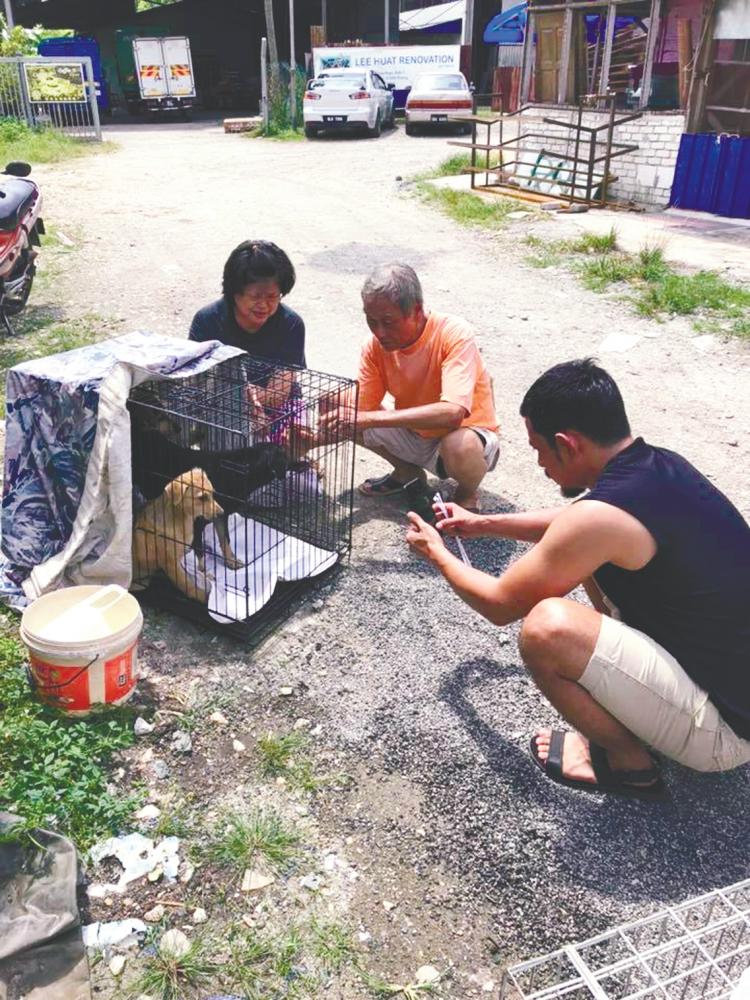WELFARE work should not be limited to only helping people in need. Animals may not have a voice, but their cries for help should be heard, too. We can be their voice, instead.
Founder of TNRM (Trap-Neuter-Release-Manage) Malaysia, Stuart Tan, was first drawn to welfare work as a young man.
“When I was younger, in my twenties, I always knew that I wanted to do charity. I was contemplating between [helping] old folks or animals. To me, old people don’t have much time left on earth, so I would like to make a difference for them.
“Then, I found out that there are a lot of NGOs that cater to peoples’ needs, while there are a limited number of organisations that care for animals, so this explains why I founded TNRM.”
TNRM has been established for a while now, eight years in August. It offers a humane alternative to managing the stray dog and cat population, by trapping the animals before bringing them to a vet to be sterilised and vaccinated, and then releasing them back into society.
It is currently a full-time venture for Tan, with a few other members who work seven days a week.
However, the lack of extra hands causes an imbalance in productivity.
Tan shared: “We are always short on manpower. We [are hoping] that there will be more people who will join us.
“As a side note, we would always tell those who want to volunteer to be prepared for a more substantial commitment, rather than just coming in to help out here and there. As you know, we are not an animal shelter, which requires [basic] help like cleaning.
“You can’t learn how to trap strays in one day. A new [person] can cause more havoc instead of helping, at times. So, we need somebody who would be able to volunteer once a week.

“They have to understand the nature of the work that we do, and it is very different from other volunteer work.”
Tan explained to us the process of the TNRM programme: “After the animal is caught, we send them directly to our panel animal clinic for neutering or spaying. Of course, the animals have to fast for a period of time before the procedure.
“Luckily, we have the advantage of boarding our animals overnight without any charge at our clinic.”
After these animals have recovered, they are then housed in a temporary transit centre before either being released back where they came from, or put up for adoption.
As for the number of animals that the organisation handles, Tan said: “Within a month, we would usually handle around 50-60 animals, and this is based on the funds that we manage to collect. If our funds increase, so will our productivity.
“I remember an incident which took place around two-and-a-half years ago, where a person donated a generous amount of funds, around RM15,000 per month, for three months consecutively.
“We were able to handle 160 animals per month, thanks to those funds!
“There was [also] an opportunity, where a company found us (TNRM), and offered to help. The transit centre that we are currently using to house the dogs and cats was built by the company.
“Sometimes, we can’t release the animals directly after [they are] neutered, so [we have] no choice but to keep them at the transit centre.
“We are always trying to find a better home for them. If there is a better [option] than the transit centre, we would gladly send the dog or cat to its new home.
“However, the adoption rate is very low. Homes are scarce, while strays are too many.”
As a non-governmental organisation, donations from the public are a main source of funds for the organisation.
“Despite that, Tan doesn’t remain idle but instead tries other methods to get funding for the cause, which unfortunately, often does not come to fruition.
“We have tried to approach companies, for instance, for corporate sponsorship, but we tend to get the same response. They say that most companies do set aside a fund for charity, but they are more interested in ‘human charity’ rather than [donating to] animals.”
Tan concluded our interview with some words of advice: “When you donate to charity, it is supposed to be from your heart. If you [are going to] donate with a [self-serving] agenda, then you should keep your money.”









